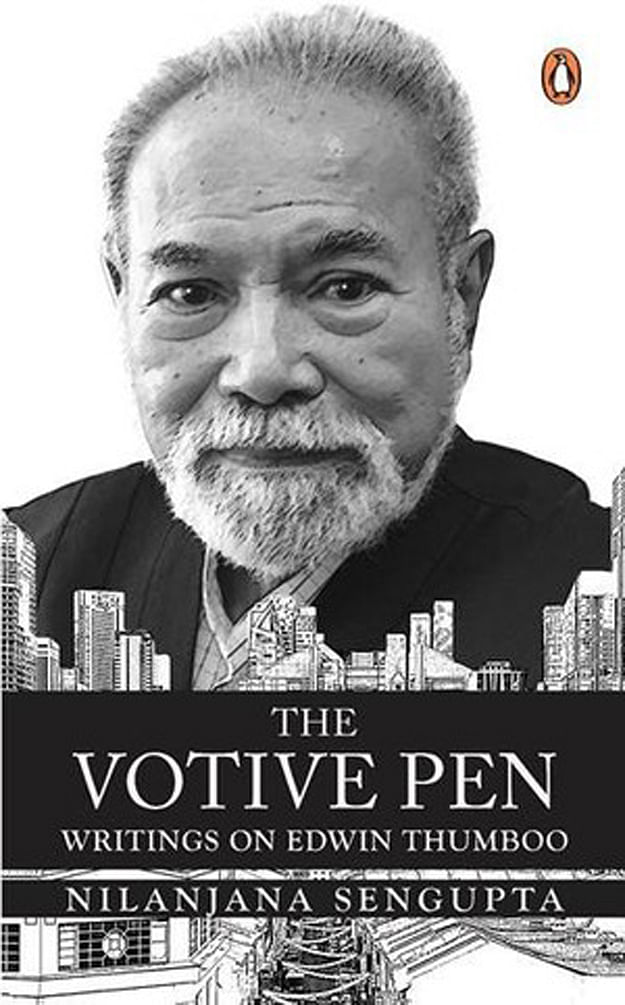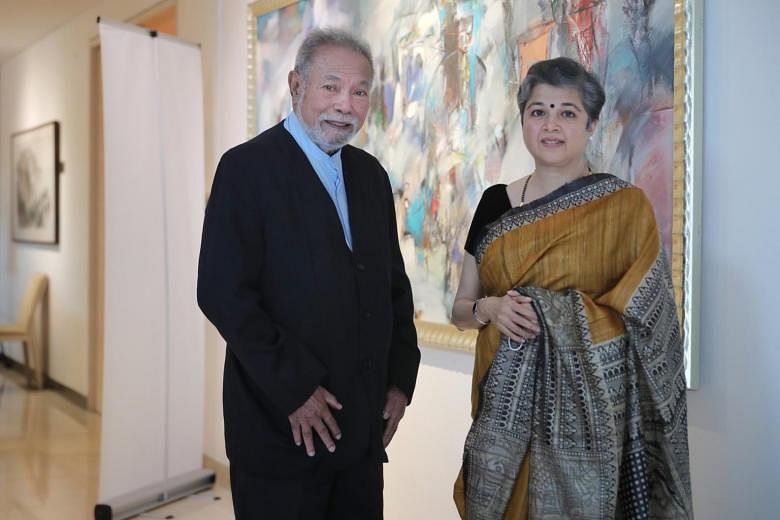SINGAPORE - It is late afternoon on April 1, 1945. The boy who will one day become one of Singapore's most distinguished poets is sitting in a guava tree, watching the light from the south fade.
The Japanese Occupation is in its last throes; rumours of the British return are in the air. The boy, Eddie, is realising for the first time the multiple worlds he can inhabit in an instant, poised between one empire and another, the spiritual and the real, the myriad futures pressing on his present.
Then he hears his mother calling him to go to the market to buy galangal, and he jumps out of the tree.
It is this moment that opens The Votive Pen, Nilanjana Sengupta's new biography of Edwin Thumboo, who is often described as Singapore's unofficial poet laureate.
It may seem an unusual choice, but then again this is an unusual biography, one that eschews the typical ordering of chronology.
"It's not so orthodox in its approach," says Sengupta, who is in her 40s and came to Singapore from India a decade ago. "It makes a lot of detours. It connects to Singapore's history, but also to his own mind map and the way his mind evolved.
"I went through his points of inspiration, the readings he was doing, the symbols he was looking for, and eventually what I found is that everything is connected."
Thumboo, who turns 88 this year, has been the subject of several books, chiefly academic, but both he and Sengupta say this is the first biography of its kind for him.
Thumboo had not been keen on the idea of a biography at first. "What was important for me were the times I lived in, not my life," he says.
"But this book was valuable for me. It gives a point of view that none of the others had. And it was useful, because I had to go back, right to the beginning."
Sengupta recalls how, during their first meeting, Thumboo looked intently at her and said: "I wrote myself into the centre of Singapore."
She says of the book: "It's describing his physical life, his life as a Singapore citizen, his life as a scholar and his life as a universal poet."
The book charts Thumboo's growth as a poet over seven decades - from his childhood, where he suffered discrimination because of his mixed Tamil and Teochew heritage, to his university days and career - against the backdrop of a Singapore finding its path to nationhood.
It examines not only the historical context of his works - his poetry includes the seminal collections Rib Of Earth (1956) and Ulysses By The Merlion (1979) - but also his literary inspirations, from the Irish poet William Butler Yeats to post-colonial African writers such as Christopher Okigbo and Gabriel Okara of Nigeria.

Sengupta, whose other books include Singapore, My Country (2016), a biography of Singapore's first Asian postmaster-general, M. Bala Subramanion, began working on The Votive Pen in 2018.
She would conduct intense, three-hour interviews with Thumboo weekly that would leave her reeling from the sheer scope of his literary allusions.
"He would drop one reference and I would end up having to go to the library and read at least a couple of dozen books about it. For me, it was like attending a masterclass with Shakespeare."
Thumboo, a Cultural Medallion recipient and National University of Singapore emeritus professor, has continued publishing in his twilight years. His 2018 collection, A Gathering Of Themes, was shortlisted for the Singapore Literature Prize.
Still, he says, he is slowing down. Being shut up at home during the Covid-19 pandemic has turned him into a television addict. "I spend at least seven or eight hours a day watching TV, especially what's happening in America."
He has not written a poem in the past nine months. "I have really stopped writing because I recognise I do not have the same vocabulary or the capacity to use it."
But though he is not sure how he will manage it, he feels he must pick up his pen again. "I have to write one more poem."
• The Votive Pen ($27.71) is available here.


